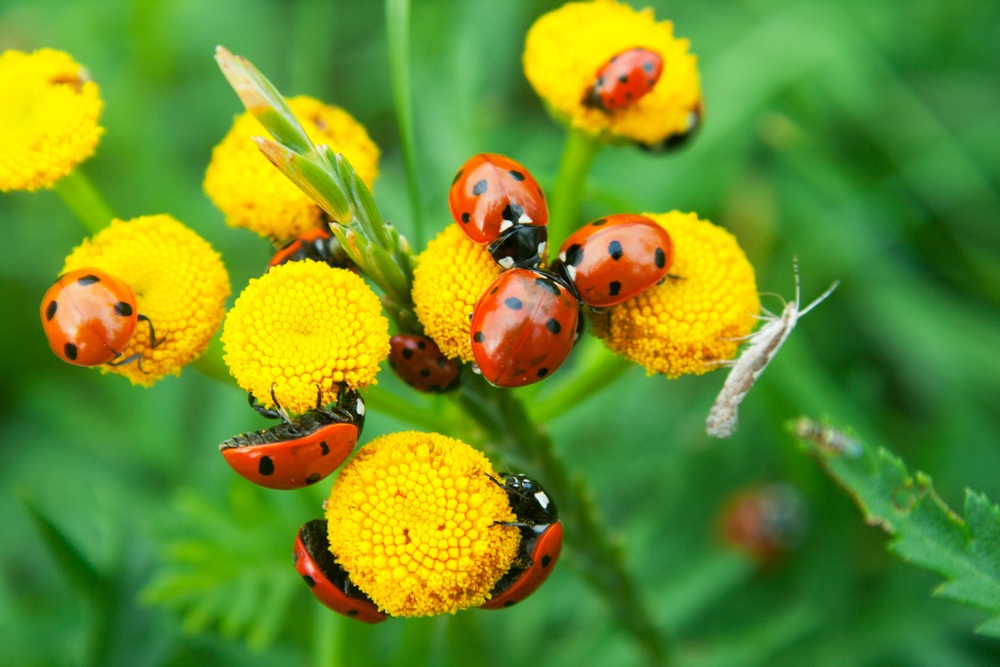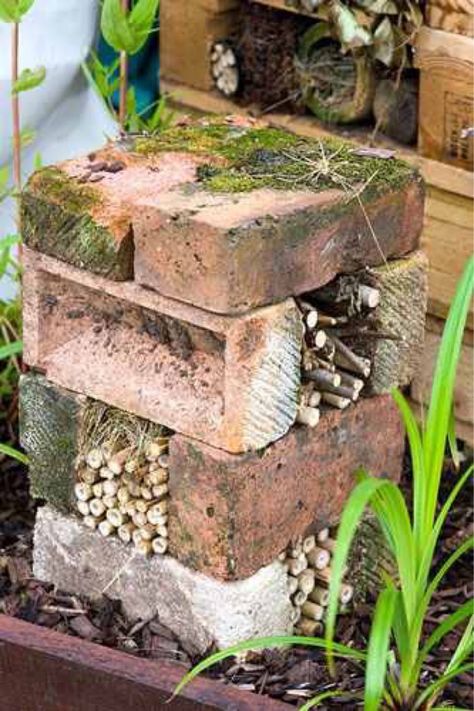
I have fond memories of my grandparents sending my younger self out to the garden with a bucket. I was given instructions to collect all the caterpillars that were munching on their lettuce. Back then, I thought I was performing a vital role in the garden. It would keep me busy for hours as I would examine every individual leaf. I had no idea that there were beneficial insects that could complete this task for me. Looking back on it, it was most likely just an elaborate plan to get some peace and quiet.
So, when I started my own gardening adventure at 14, I was determined to have an organic garden, just like my grandparents, no chemical fertilizers or pesticides.
I Learnt A Valuable Lesson...
The first year after I planted my orchard, my trees became overwhelmed with aphids and mealy bugs. Determined to beat this issue, I decided to sit there and scrape off every insect by hand, this went on for weeks. One day, I noticed a strange looking bug, it kind of looked like a mealy bug, white and fuzzy, but it walked around quite fast. Concerned that the mealy bugs were somehow becoming stronger, I promptly squished it.
You can imagine my horror when I later researched this bug and found out it was actually a ladybug larva- coccinellidae. They are one of the many beneficial insects to have in your garden and can eat up to 50 aphids a day each! I was devastated that I had squished such an amazing insect that was just trying to help me out in the garden, and I certainly learnt from my mistake.
Now, I let the nature of permaculture do the work. Instead of laboring over infested plants, I sit back and wait for the beneficial insects to work their magic.

What are Beneficial Insects?
Beneficial insects are highly valued creatures that bring invaluable benefits to the garden environment. They can help with essential tasks like pollination, which is hugely important for growing healthy and productive crops.
Additionally, these insects also serve as natural pest control, helping reduce the amount of harmful insects that damage your plants.
By attracting beneficial insects to your garden, you can create a healthier and more balanced ecosystem. Furthermore, these insects also play a critical role in supporting the overall biodiversity of the area by maintaining a harmonious relationship between nature and the garden. So, if you want to enjoy a healthy and thriving garden, supporting beneficial insects is an effective and eco-friendly approach that you should definitely consider.
What is Permaculture?
Permaculture, which stands for permanent culture or permanent agriculture, is a nature led approach to gardening. It emphasizes closely observing natural ecosystems and using this wisdom to guide us in our gardening practices. Permaculturists aim to work in harmony with nature rather than against it.
Ultimately, permaculture offers a more sustainable way of living, designing and managing our gardens, one that is in alignment with the principles of ecological balance and harmony.
The Importance of Pollinators
The essential role of pollinators in plant reproduction cannot be overstated. Did you know that nearly 90% of plants across the globe rely on pollination to produce fruits, vegetables, or seeds?
While some plants use the wind to move their pollen around, others rely on passing animals to pick up and transfer their pollen. However, the vast majority of plants require the intervention of pollinator insects. These insects feed on the nectar and pollen from flowers before carrying pollen grains from one flower to the next.
Without these incredible insects, you would be left with the daunting task of hand-pollinating each and every flower in your garden using a paintbrush. Can you imagine the time and effort that it would take?
Thankfully, by ensuring that habitats for pollinators are protected and promoting the use of pollinator-friendly plants, we can continue to benefit from the important services of these amazing insects.
Beneficial Insects in Permaculture
Common beneficial insects can be helpful in a variety of ways. The most beneficial usually fulfill two categories; predators or pollinators.
Common predators seen in the garden include insects like the ladybug, coccinellidae. The ladybug is a voracious consumer of pests like aphids, mealybugs that plague your plants. Not to mention my personal favorite- the praying mantis, mantodea. This beautiful insect eats a huge variety of pests, ranging from smaller insects like ants and flies, all the way to larger things like roaches and grasshoppers.
Pollinators are much loved by gardeners and include insects like solitary bees, such as mason bees, Osmia bicornis. An insect whose population is quickly declining. They are said to pollinate plants even more efficiently than the more commonly known, honey bee, Apis mellifera. Butterflies are another great example of an important pollinator. Whilst they may not pollinate as efficiently as the mason bee, they are able to travel long distances and have an added bonus of looking beautiful in your garden. Take monarch butterflies, danaus plexippus, as an example. These amazing, yet endangered, butterflies travel over 3000 miles every fall and would love to have a safe place to feed in and pollinate your garden.

Attracting Pollinators
Attracting pollinators and other beneficial insects to your garden is essential for a thriving ecosystem and successful plant pollination.
Start by selecting a variety of nectar-rich flowers that bloom throughout the growing season. Plants like lavender, coneflowers, and bee balm are excellent choices. Here at KeyStone, we inter-plant pollinator favorites among our vegetables. We especially love to companion plant them with perennials. This ensures they are protected during their long life spans. Additionally, avoid using pesticides and herbicides, as these can harm pollinators. Even poisoning just one undesirable insect can lead to the collapse of your gardens entire beneficial ecosystem .
Provide a water source, like a shallow bird bath with stones for landing, to ensure they stay hydrated. The stones also prevent smaller insects like bees from drowning. Make it a routine to change the water at least once a week.
Create diverse habitats by incorporating native plants and leaving some wild areas in your garden. Consider installing bee houses or butterfly shelters to offer shelter and nesting sites. If you prefer a more natural and cost effective route, just neglect your garden chores. Piles of dead leaves and deadwood can create a valuable space for insects like solitary bees to overwinter and lay eggs.
By following these steps, you can transform your garden into a welcoming haven for bees, butterflies, and other essential pollinators.


Pingback: Asparagus Growing: The Ultimate Guide - KeyStone Cottage
Pingback: Companion Planting - KeyStone Cottage